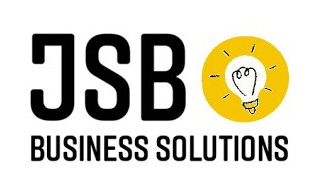How Do You Manage Conflicts With Small Business Owners? Be Proactive.
Conflict is an inevitable part of life, especially in the world of business. However, what sets successful businesses and professionals apart is their ability to proactively resolve one.
Conflict is an inevitable part of life, especially in the world of business. However, what sets successful businesses and professionals apart is their ability to resolve conflicts effectively and, even better, to prevent them from arising in the first place.
Through my years of experience in managing business-to-business (B2B) relationships, I have come to understand that the key to conflict resolution lies in proactive measures. This article will explore two essential strategies I have found invaluable: clarifying expectations and utilizing Memorandums of Understanding (MOUs).
Clarifying Expectations: The Foundation of Conflict Prevention
The foundation of any successful business relationship is the clarity of expectations. Misunderstandings and miscommunications are often the root causes of conflicts, so it is imperative to clarify expectations from the outset. Here's how you can do it:
A) Define Roles and Responsibilities: Clearly outline the roles and responsibilities of each party involved in the business relationship. This ensures that everyone understands their duties and how to be accountable.
B) Establish Communication Protocols: Create a structured communication plan that includes regular check-ins, reporting mechanisms, and escalation paths. This prevents issues from festering due to lack of communication.
C) Set Performance Metrics: Define key performance indicators (KPIs) and measurable goals that both parties agree to achieve. Regularly assess progress against these metrics to track the success of the relationship.
D) Anticipate Challenges: Acknowledge potential challenges and risks upfront. Develop contingency plans and strategies to address these issues if they arise.
Memorandums of Understanding (MOUs): Building Strong Foundations
In the realm of B2B relationships, MOUs are powerful tools for conflict prevention and resolution. An MOU is a formal agreement that outlines the terms and conditions of the relationship between two parties. Here's why I'm a huge advocate for MOUs:
A) Clarity of Purpose: An MOU clearly defines the business relationship's purpose, objectives, and scope. This leaves no room for ambiguity, ensuring that both parties are on the same page.
B) Duration and Evaluation Periods: As mentioned, most of my B2B relationships involve contracts or agreements with defined time frames and evaluation periods. This approach allows for periodic assessments of the relationship's performance. If issues arise, it provides a structured opportunity to address them.
C) Clean Breaks: One of the key benefits of MOUs is that they facilitate clean breaks. In the unfortunate event that a project goes awry or the relationship needs to end, the terms and conditions for termination are already established. This reduces the potential for messy legal battles and disputes.
D) Balancing Power: MOUs also help in balancing the power dynamics between parties. By clearly outlining the rights and obligations of each party, it ensures that no one party has an unfair advantage over the other.
Bonus: Because I’m feeling altruistic today, click here for a sample MOU. However, this is a limited-time offer.
The world around us wasn’t built by the exceptional. It was built by everyday people who were willing to do exceptional things. Go build something.


Thanks for reading The Grow Givers Project! Subscribe for free to receive new posts and support my work.
Start writing today. Use the button below to create your Substack and connect your publication with The Grow Givers Project



